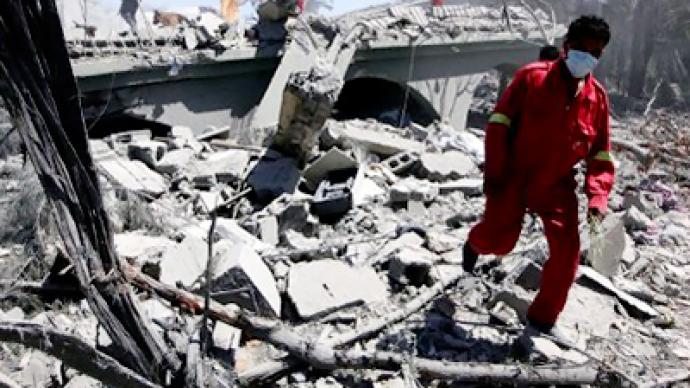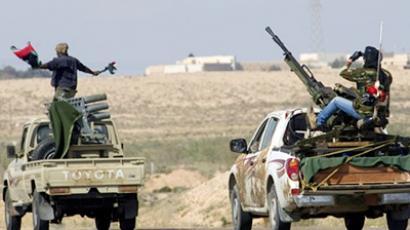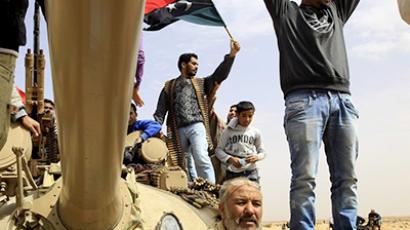Tripoli claims 15 civilians killed in NATO airstrike

In Libya, another deadly NATO bombing has reportedly killed at least 15 civilians in the capital Tripoli. NATO insists it hit a command center, but Libyan officials say three children are among the dead.
It comes just a day after the alliance admitted killing up to nine civilians in another airstrike, which it blamed on a technical failure.A large private compound to the west of the capital has been reduced to rubble in the latest apparent airstrike. Rescuers have discovered the remains of 15 people, accordion to Libyan officials.The house destroyed belonged to General Khoweildi al-Hamidi, one of the people closest to Colonel Gaddafi. He was among those who took part in the military coup to bring the Libyan leader to power 41 years ago. The general escaped injury, but most of his family died in the attack.“If you saw him yesterday, you would not believe,” a man, crying, told RT. He was talking about one of the grandchildren of the general and one of three kids who were killed in the incident. The day of the bombing, the family had gathered with friends to celebrate his 4th birthday.“Libyan civilian families were attacked in the early hours of this morning, killing 15 people, including children, fathers, mothers, uncles and aunts,” said Moussa Ibrahim, a spokesman for the Libyan government.NATO has denied these claims, just as it has never admitted the deaths of more than 800 others the Libyan government says were killed by their bombs. The nine people killed in Sunday’s bombing of a residential building in Tripoli remain the only civilian casualties acknowledged by the alliance, which blamed the incident on a technical failure with the weapons.A former Pentagon official, Michael Maloof, says the only thing clear about the NATO campaign is the mounting casualty toll and the damage it is inflicting on the Libyan people.“They tried to achieve a certain level of humanitarian effort initially, but the protracted bombing is now increasingly hitting civilian targets, and it’s creating a very negative reaction. I think it does raise the question over what NATO’s continued role is going to be there,” he said.As discontent at NATO’s actions increases, other voices become more and more loud too – the voices of the Libyan people. And it seems that the more anger they feel about NATO – the more they support their leader.Life in Libya has changed dramatically since February 17, when the uprising began in Benghazi. With a shortage of fuel, unemployment and rising prices, it is getting more and more challenging. But these hardships are not pushing people to rise up against their leader as those seeking to force Gaddafi out have been hoping. Instead, people are feeling more and more united, and demonstrations in support of the colonel are gathering more and more people.“We came here to first support Gaddafi, second – a message to NATO to stop bombing us,” one of the demonstrators told RT. “I’m not from Tripoli, I came 150 kilometers from here to say I am ready to die for Gaddafi.”
Washington’s justification of NATO’s operation in Libya as a humanitarian action is just a nice story for domestic consumption, argues Lawrence Davidson, a professor of Middle Eastern history at West Chester University. “You cannot intervene anywhere, with this level of munitions, and not kill civilians,” he said. “So you are going in to protect civilians by intervening with the type of munitions that cannot avoid killing civilians – and the military, of course, knows this.”














